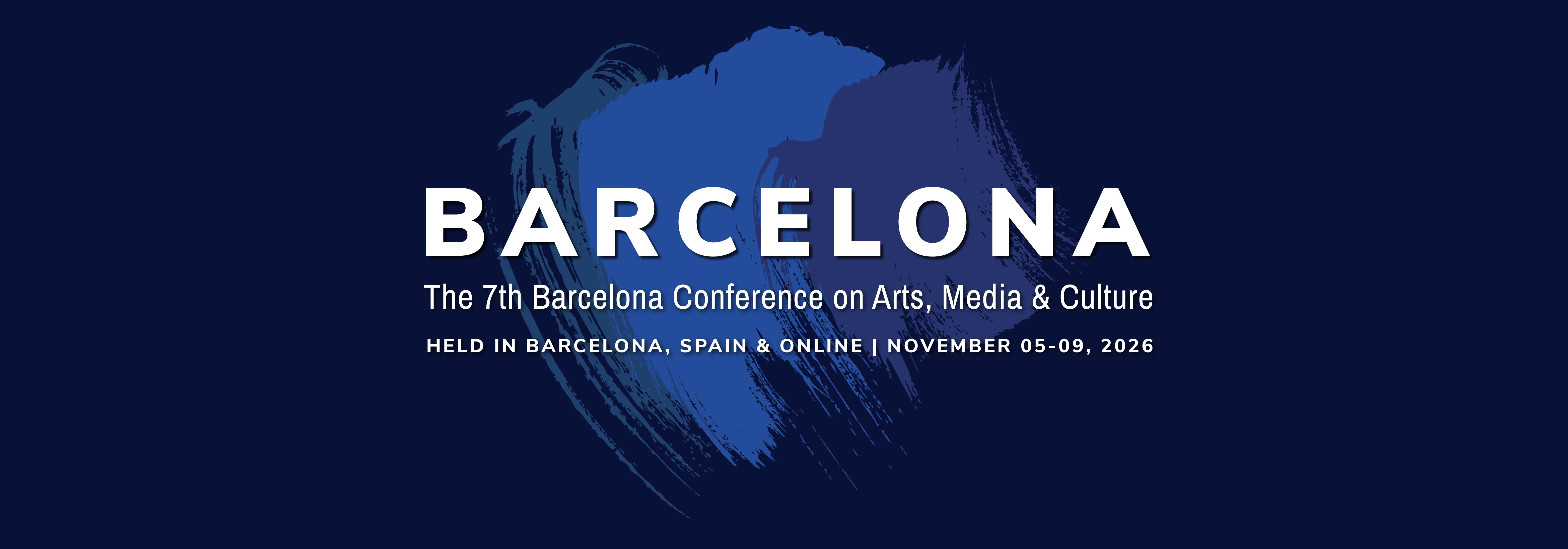Thursday, November 5 to Sunday, November 8 will be held at TBS Education Barcelona.
Monday, November 9 will be held online.
All times are Central European Time (UTC+1)

Conference Outline
*Please be aware that the above schedule may be subject to change.
Conference Venues: TBS Education Barcelona
13:15-14:00: Conference Check-in | Lobby (Ground Floor)
14:00-14:30: IAFOR Information Session | (B1) Gràcia
14:30-16:00: Workshop Session | (B1) Gràcia
16:00-17:00: Rumba Catalana Performance and Workshop | Auditorium (7F)
A Journey Through the History of the Catalan Rumba
17:00-18:00: Welcome Reception | Foyer (7F)
This is a free event open to all registered delegates
Conference Venues: TBS Education Barcelona
09:00-10:00: Conference Check-in & Coffee | Lobby (Ground Floor)
10:00-10:35: Welcome Address & Recognition of IAFOR Scholarship Winners | Auditorium (7F) & Online
Joseph Haldane, The International Academic Forum (IAFOR), Japan
10:40-11:05: Keynote Presentation | Auditorium (7F) & Online
11:05-11:20: Q&A Session
11:25-12:25: Panel Presentation | Auditorium (7F) & Online
12:25-12:40: Conference Photograph
12:40-14:15: Extended Break
14:15-15:15: Panel Presentation | Auditorium (7F) & Online
15:15-15:45: Networking Coffee Break
15:45-16:15: Keynote Presentation | Auditorium (7F) & Online
16:15-11:25: Q&A Session
16:25-17:25: Forum Discussion | Auditorium (7F)
17:30-18:30: Conference Poster Session | Auditorium Lobby (7F)
20:00: Conference Dinner | Racó de la Vila
This is a ticketed event
Conference Venues: TBS Education Barcelona
08:30-09:30: Conference Check-in | Lobby (Ground Floor)
09:30-11:10: Onsite Parallel Session 1
11:10-11:25: Short Coffee Break
11:25-13:05: Onsite Parallel Session 2
13:05-13:35: Extended Break
13:35-15:15: Onsite Parallel Session 3
15:15-15:30: Short Coffee Break
15:30-17:10: Onsite Parallel Session 4
17:15-17:30: Onsite Closing Session
Conference Venues: TBS Education Barcelona
08:50-09:30: Conference Check-in & Coffee | Lobby (Ground Floor)
09:30-11:10: Onsite Parallel Session 1
11:10-11:25: Short Coffee Break
11:25-13:05: Onsite Parallel Session 2
13:05-13:35: Extended Break
13:35-15:15: Onsite Parallel Session 3
15:15-15:30: Short Coffee Break
15:30-16:45: Onsite Parallel Session 4
16:45-17:00: Onsite Closing Session
Location: Online
08:55-09:00: Message from IAFOR
09:00-10:15: The Forum | Live-Stream Room 1
10:20-12:00: Online Parallel Session 1
12:00-12:10: Break
12:10-13:50: Online Parallel Session 2
13:50-14:00: Break
14:00-15:15: Online Parallel Session 3
15:15-15:20: Closing Message from IAFOR
Conference Programme
The draft version of the Conference Programme will be available online on September 28, 2026. All registered delegates will be notified of this publication by email.
edit out when not using
*Please be aware that the above schedule may be subject to change.
Featured Speakers
Featured Presentations
Attendee Guide
Please carefully read the Attendee Guide.
Important Information Emails
All registered attendees will receive an Important Information email and updates in the run-up to the conference. Please check your email inbox for something from "iafor.org". If you can not find these emails in your normal inbox, it is worth checking in your spam or junk mail folders as many programs filter out emails this way. If these did end up in one of these folders, please add the address to your acceptable senders' folder by whatever method your email program can do this.
Previous Programming
View details of programming for past BAMC conferences via the links below.
